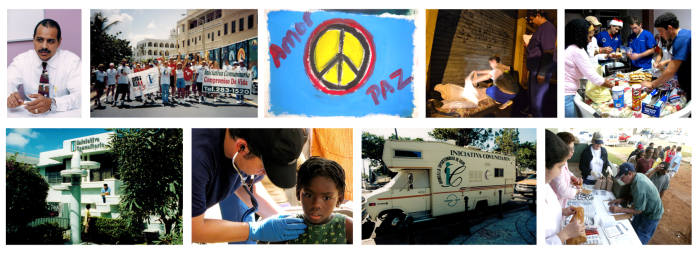History

Iniciativa Comunitaria de Investigación, Inc. (ICI) is an organization born out of necessity at a time when HIV/AIDS education on treatment alternatives was limited. In the 1990’s, azidothymidine or AZT was the only treatment option available. Dr. José A Vargas Vidot, together with a group of HIV/AIDS patients and community members, recognized the information barrier and the need for action to benefit patients with this illness. With that purpose in mind, they developed a project to educate and guide patients and the community about non-traditional treatment options and other research protocols besides AZT.
The experience of those early years clearly defined the beginning of Iniciativa Comunitaria’s evolution and history when confronting the other side of AIDS: the prejudice, the lack of compassion, the most affected populations, the lack of prevention and primary health care services, and addiction.
After its incorporation in 1992, Iniciativa Comunitaria started to develop and implement health services programs focused on HIV/AIDS prevention for prostitutes, at-risk women, injecting drug users and homeless people – the groups most affected by the illness. As of 1998, Iniciativa Comunitaria introduced drug rehabilitation services by creating comprehensive services that include from detoxification to community reintegration.
Furthermore, in collaboration with various communities, Iniciativa Comunitaria established education and prevention programs for at-risk youths and dropouts, and also developed projects that offer health education to families, and foster and improve family relationships.
The organization has become a place of opportunity for health and rehabilitation services and for improving the quality of life of thousands of individuals discriminated through prejudice and ignorance with no access to healthcare services.


